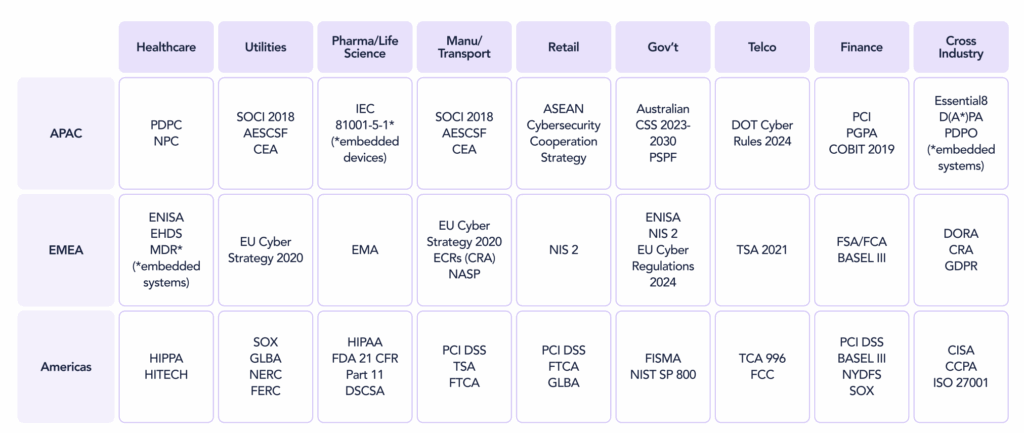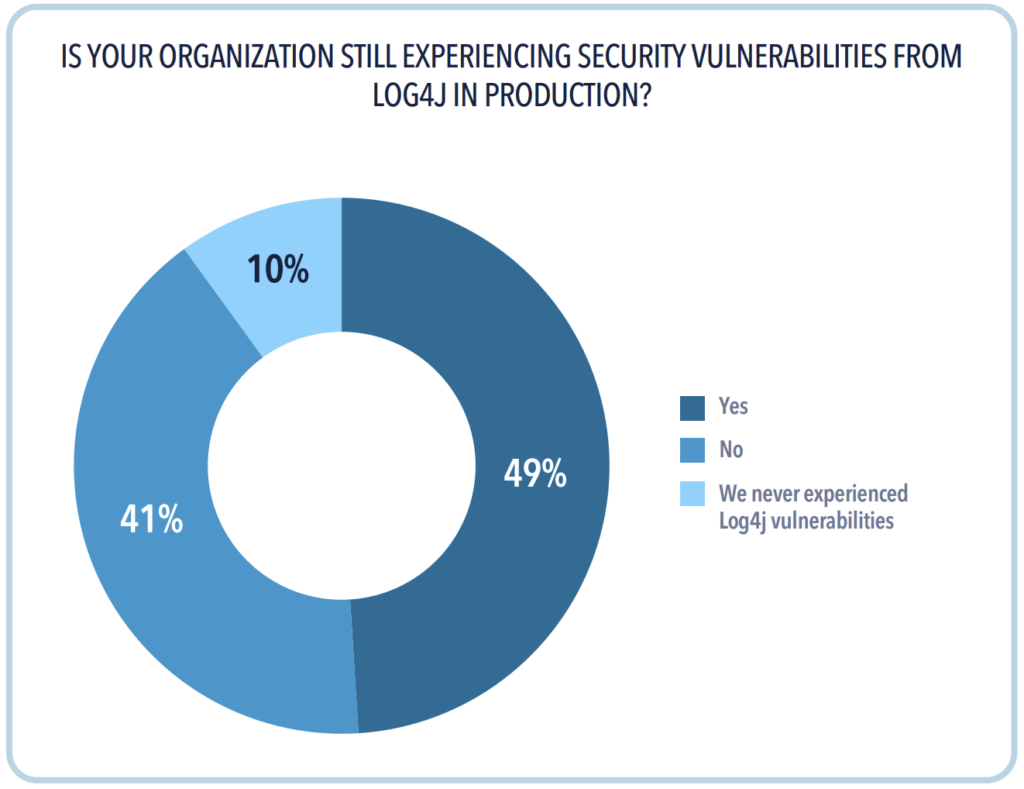Summary
There are a variety of global regulations and legislations that, depending on your industry and each country’s enforcement policies, have strict Java application security requirements. Enterprises running applications on non-Oracle OpenJDK alternative distributions must take steps to ensure regulatory and legislative compliance.
In this post you will learn:
- Three critical strategies for ensuring compliance and limiting risk are patch management, incident reporting, and securing legacy technologies
- Azul has a unique set of solutions that neither Oracle nor other non-Oracle OpenJDK alternative distributions can match
- Azul will host three webinars on compliance challenges for Asia Pacific, Europe, and North America in August and September
When your organization migrates from Oracle Java SE to a non-Oracle alternative distribution, you have enough to worry about making sure you don’t leave any Oracle Java instances in your Java estate that expose your organization to a commercial liability.

Access our 3-part webinar series - Java and Regulatory Compliance: What You Need to Know. Each of these on-demand webinars focus on a specific global region - United States, Europe, and Asia-Pacific. View now.
Understandably, enterprises have concerns about the migration process and the success of their Java applications with OpenJDK. There are fundamental but critical things they should be looking for [Table 1].
| Feature | Importance |
|---|---|
| Based on OpenJDK | Ensures continued viability with the same architectures |
| TCK tested | Ensures compatibility with any OpenJDK version |
| Security-only Critical Patch Updates, (which provide more stable updates than Patch Set Updates), as well as out-of-cycle updates | Maintains compliance with industry regulations or government legislation around security, availability of systems/data, EOL technology use, and security breach incident response times |
Table 1: Three ways to make your migration to a non-Oracle OpenJDK alternative distribution successful.
The importance of compliance
There are a variety of global regulations and legislation that, depending on your industry and each country’s enforcement policies, require application security best practices [Figure 1]. Many require organizations to conduct regular risk assessments, including addressing software vulnerabilities in a timely manner. Consider the support of OpenJDK vendors that provide security-focused critical patch updates (CPUs) and vulnerability identification services to reduce the risk of non-compliance. Check with legal and compliance on the needs of your organization before putting the organization at risk.

Three ways to protect yourself against non-compliance
There are three basic but critical steps your organization can take to guard against non-compliance: patch management, incident reporting, and securing legacy technologies.
1. Patch management
Enterprises typically claim to be diligent about patch management, but the Ponemon Institute reports that 60% of data breach victims said they were breached because a patch for a known vulnerability was available but not applied. Azul’s 2025 State of Java Survey & Report reveals that 49% of enterprises still find compromised versions of Log4j in their production environments [Figure 2].

How Azul can help
- Stabilized security builds: Azul is the only Java leader besides Oracle that delivers stabilized security builds known as CPUs so you can deploy updates with confidence, keeping your Java applications secure, stable and regression-free. In contrast, other OpenJDK vendors provide only Patch Set Updates (PSUs) that combine bug fixes, new features, and security patches. Historically, 1 in 4 PSUs have introduced regression issues and had to be rolled back exposing organizations to attack. Learn more about stabilized security builds.
- Out-of-cycle patches: When a critical zero-day vulnerability is discovered (or a customer-specific issue) and a patch can’t wait, Azul customers receive out-of-cycle patches so they can stay safe without interruption.
- 24x7x365 Global technical support: Azul has a 100% customer satisfaction rating based on our relentless focus on helping customers unleash the true power of Java. Learn more about Azul Support.
- Backported security fixes for Java 6 and 7: Oracle no longer supports Java 6 and 7. Azul is the only Java leader that provides backported security fixes from later versions to Java 6 and 7. Learn more about Azul support for Java 6 and 7.
2. Incident reporting
Enterprises say they have quick incident reporting procedures in place, but IBM reports that the mean time for security teams to identify and contain a breach is 241 days. Traditional AppSec and APM tools overwhelm organizations with irrelevant security alerts that cripple prioritization and drain productivity.
How Azul can help
- Vulnerability detection: Azul Vulnerability Detection, a feature of Azul Intelligence Cloud, continuously detects known vulnerabilities using production Java runtime data to eliminate false positives with no performance penalty. This approach delivers a 100x to 1000x reduction in false positives, empowering DevOps teams to prioritize real risks faster, improve security posture and recover developer capacity. Learn more about Azul Vulnerability Detection.
- Superfast support: Azul offers 24x7x365 support with a 1-hour response window, ensuring fast response times to incidents. Our team of Java experts can also provide root cause analysis when security incidents occur, as well as patches to remediate vulnerabilities to ensure that breaches can be closed quickly and don’t recur. Learn more about Azul Support.
3. Legacy EOL technologies
Oracle no longer provides support for Java 6 and 7, as well as older technologies like Java Applets, Java Web Start (JWS) and JavaFX on Java 8. Industry regulations (like PCI-DSS) mandate that End Of Life (EOL) software must have commercial support.
How Azul can help
- Applet alternative: Azul provides commercial support for our open-source solution for Java applets based on Azul Platform Core. Learn more.
- JWS alternative: Azul provides commercial support for open-source solutions based on our up-to-date fork of IceTeaWeb, a viable alternative to JWS applications. Learn more in our blog post on applet alternatives.
- JavaFX support: Azul is one of the few OpenJDK distributors that still provides builds with JavaFX included, ensuring the combined OpenJDK and OpenJFX are fully compatible. Learn more in our blog post on JavaFX solutions.
Join our webinar series
Join our webinar series, Java and Regulatory Compliance: What You Need to Know. Our first webinar on August 20 is about challenges in the Asia Pacific region. We will host webinars on Europe and North America challenges in September. Register now.







